University of Saint Joseph Macao participates in the Resilient by Technology and Design 2024 Conference: Fostering Sustainability
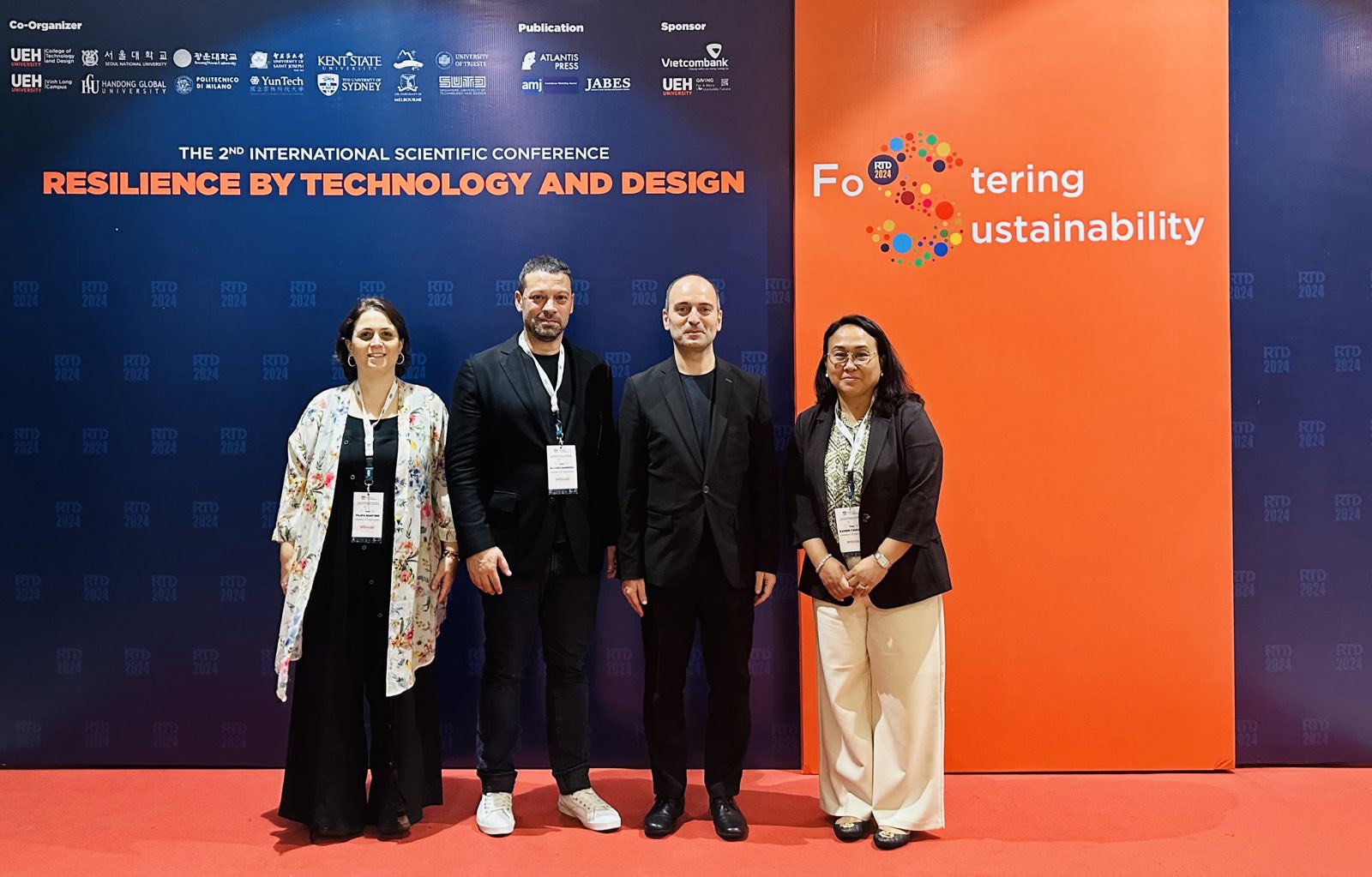
University of Saint Joseph Macao participates in the Resilient by Technology and Design 2024 Conference: Fostering Sustainability
19
Jul
19/07/2024
The University of Saint Joseph Macao (USJ) significantly contributed to the success of the 2nd International Conference: Resilience by Technology and Design (RTD 2024) held from July 15-18, 2024.
Ho Chi Minh City, Vietnam – July 18, 2024 – The University of Saint Joseph Macao (USJ) significantly contributed to the success of the 2nd International Conference: Resilience by Technology and Design (RTD 2024) held from July 15-18, 2024.
This prestigious event, hosted by the University of Economics Ho Chi Minh City’s College of Technology and Design, the Institute of Smart City & Management (ISCM), brought together thought leaders, academics, and practitioners to explore integrating sustainable practices within technology and design. USJ’s delegation, led by esteemed professors and a student, played pivotal roles across various sessions, showcasing their expertise and commitment to sustainability.
The participating members included:
- Prof. Álvaro Barbosa, Vice-Rector for Internationalisation and Academic Affairs.
- Prof. Karen Tagulao from the Institute of Science and Environment.
- Prof. Nuno Soares, the Department of Architecture and Design head from the Faculty of Arts and Humanities.
- Prof. Filipa Martins from the Faculty of Arts and Humanities.
- Hazel Wong, a Master of Design student.
The four main topics and subtopics sessions were at the UEH Campus B in Ho Chi Minh City on July 15 to 16: 1. AI Art and Sustainable Practices; 2. Advances in Sustainable Healthcare Systems; 3. Smart Cities and Urban Planning; 4. Digital Design for Sustainability.
On the first day, Prof. Álvaro Barbosa delivered a Keynote speech, authored in collaboration with Prof. Alexandre Lobo, focused on Benchmarking Sustainability: Neurosciences and AI Tech Research in Macau focusing on the SDG 3: Good Health and Well-being; SDG 9: Industry Innovation, and Infrastructure; SDG 12: Responsible Consumption and Production.

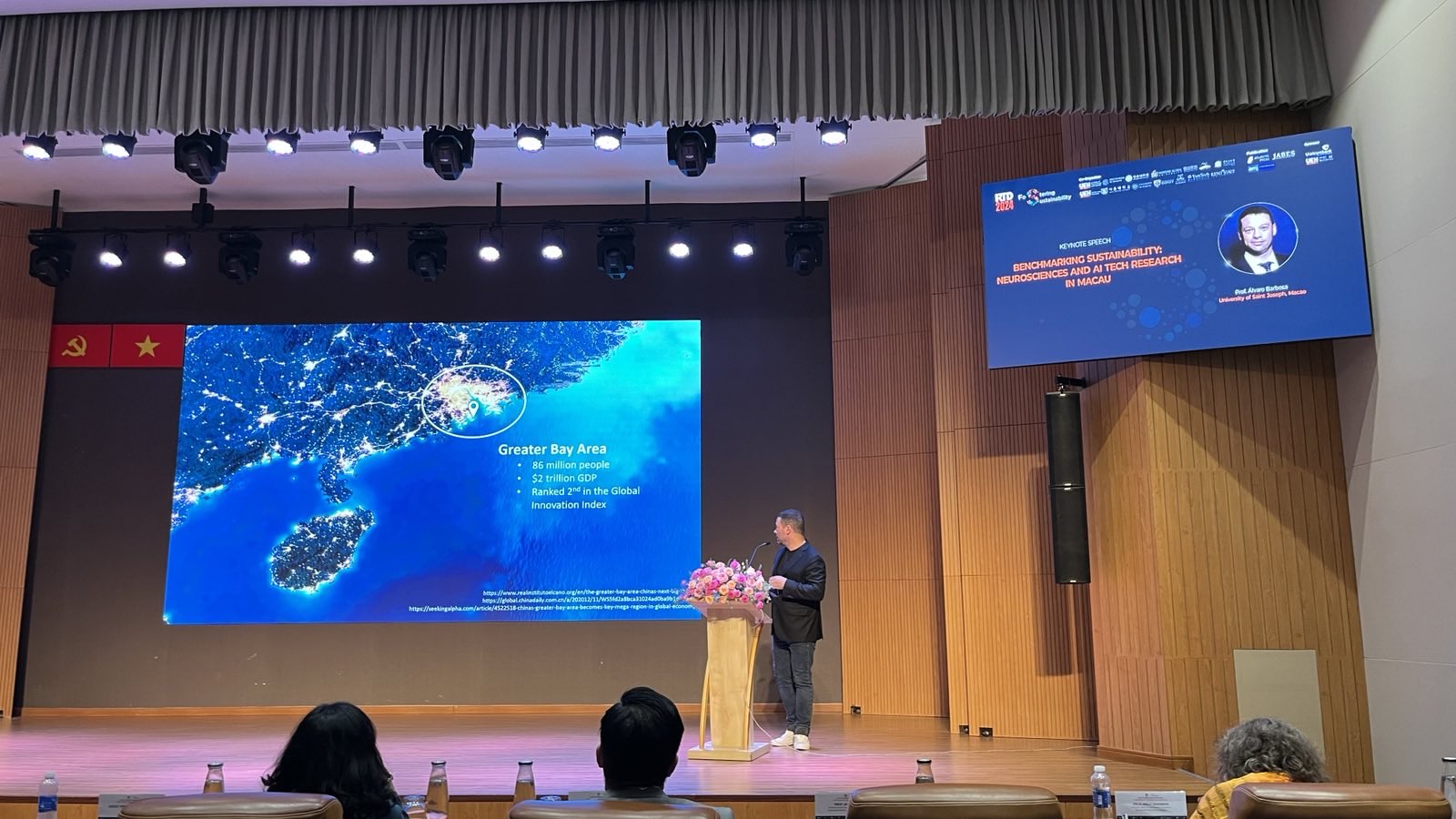
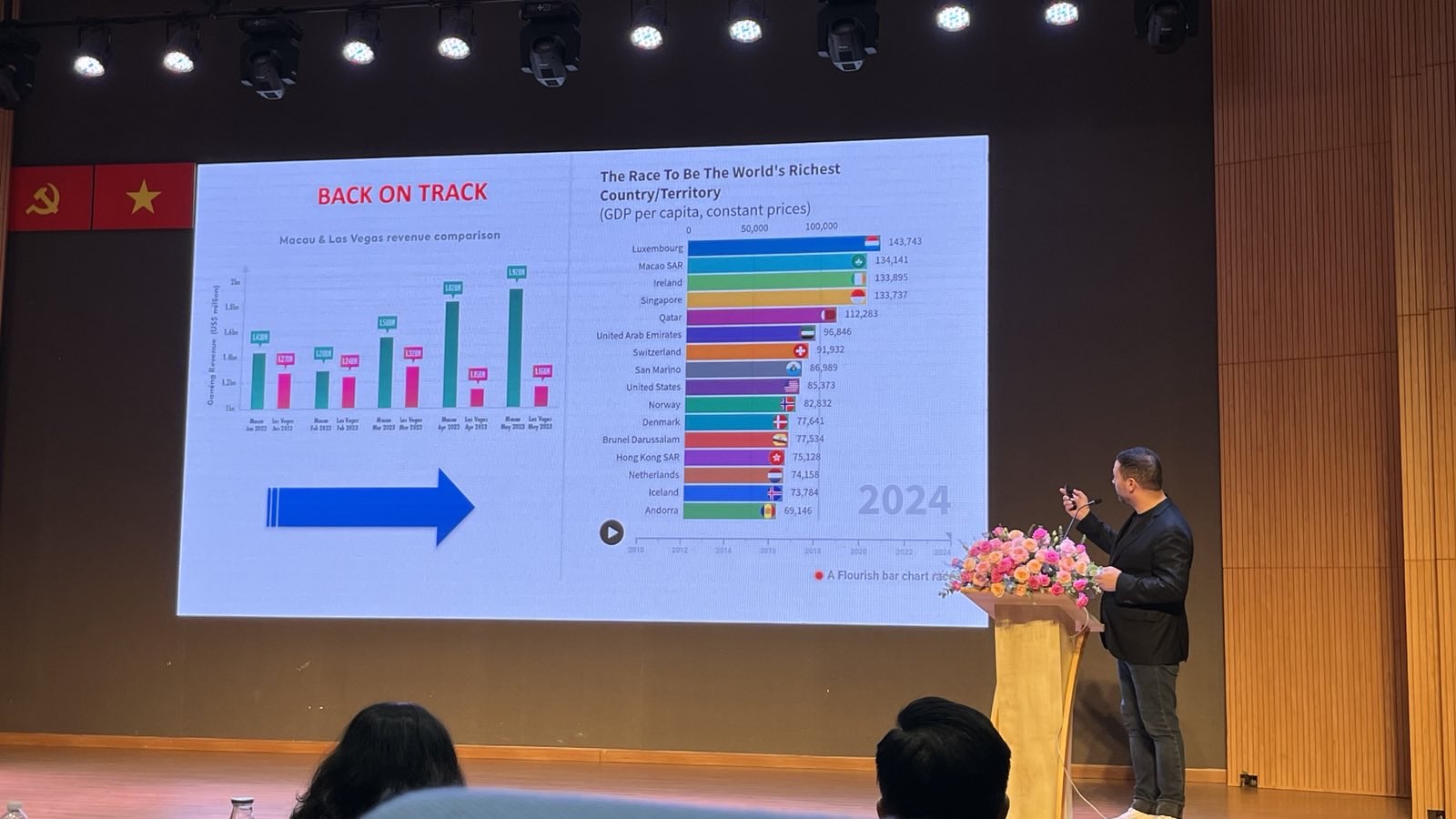

Following that, Prof. Nuno Soares led a panel titled Nature-based Solutions for Smart City Development, emphasising the Southern Inner Harbour Domain and the Conceptual Master Plan Macao, alongside Kelly Shannon, Bruno de Meulder, and Nguyen Anh Tuan. His talk focused on innovative approaches to urban development in Macao.
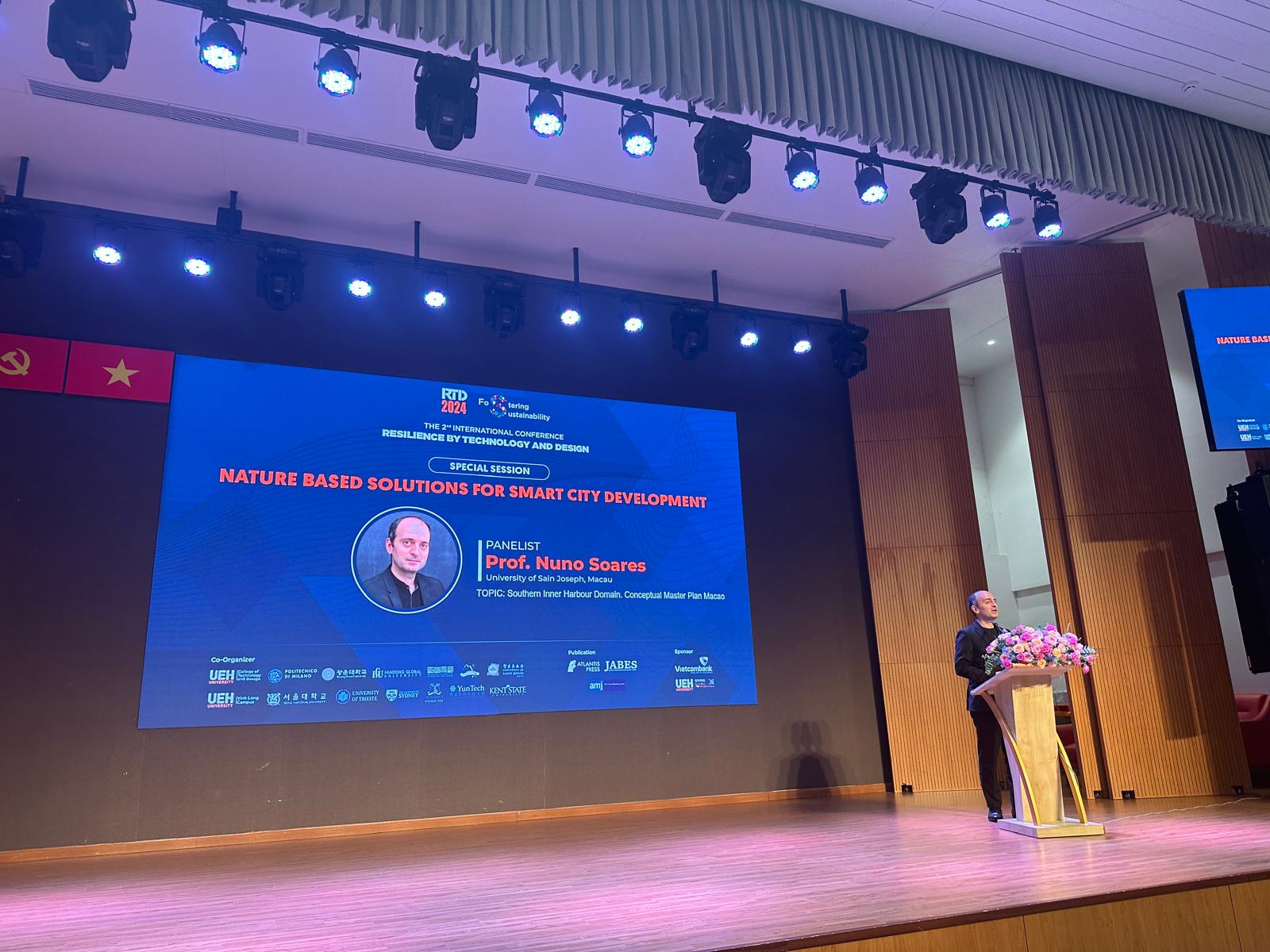

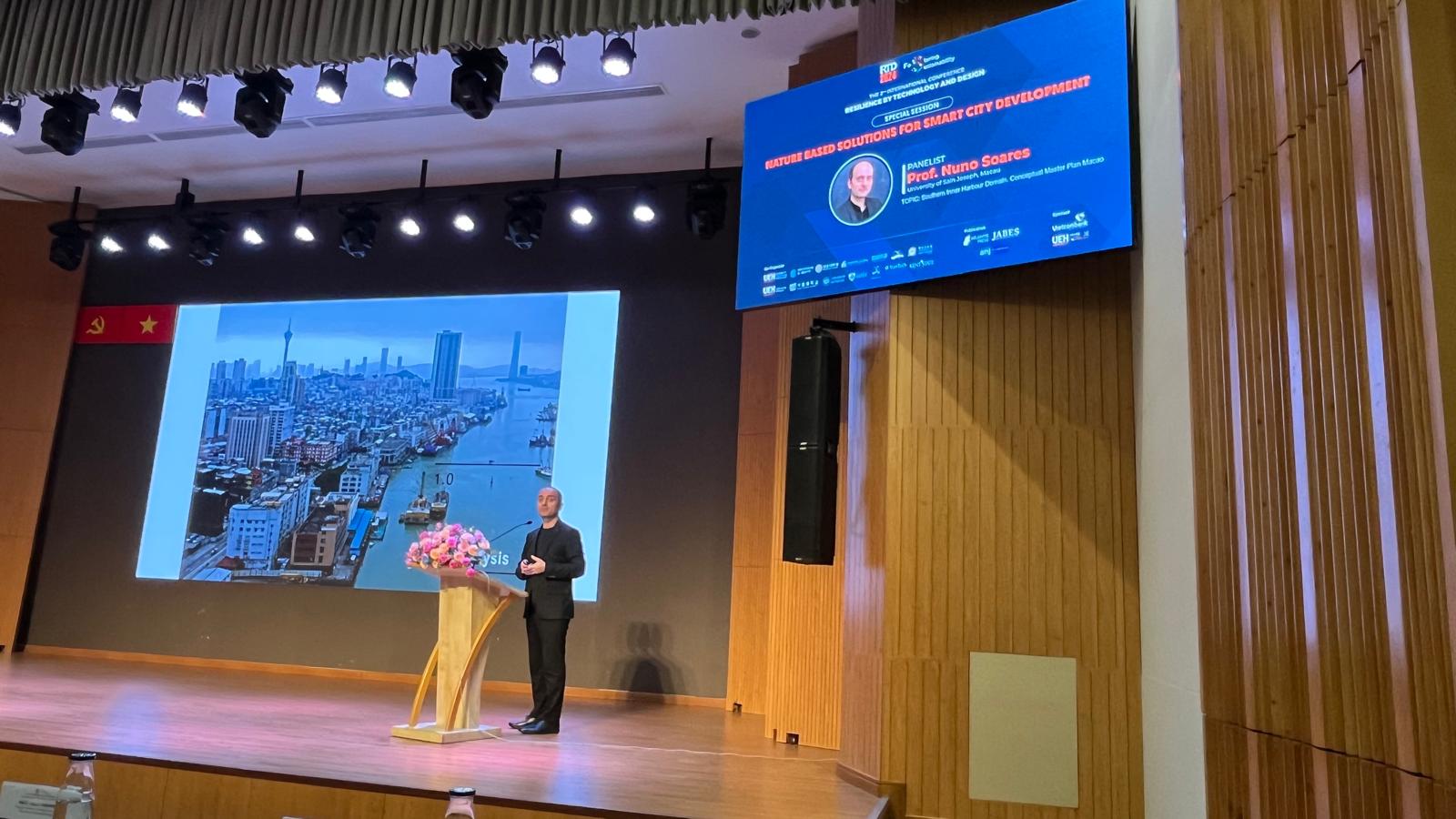
A second panel, led by Prof. Filipa Martins, focused on Macau’s Visual Identity, its patterns, textures, and augmented realms, as well as how innovative digital design methodologies and frameworks provide valuable insight into sustainable digital preservation, alongside Prof. Dong Su Yi and PhD candidate Le Thi Hanh An, aligned with the SDG’s: SDG 4: Quality education; SDG 11: Sustainable Cities and Communities; Digital Heritage and Preservation strategies. The project is funded by the Macao Foundation under Prof. Filipa Martins de Abreu.



On the second day, Prof. Karen Tagulao participated in a special session panel on sustainability alongside Prof. Lesly Goh from the World Bank and Prof. Jiyong Eom from Korea. The panellists shared knowledge, practical experiences, and inspiration in this special session to engage stakeholders in achieving the 17 Sustainable Development Goals (SDGs). Prof. Karen shared about initiatives in Macao, specifically strategies for integrating industry and academia in sustainable development programs and how to translate scientific knowledge into actionable steps.
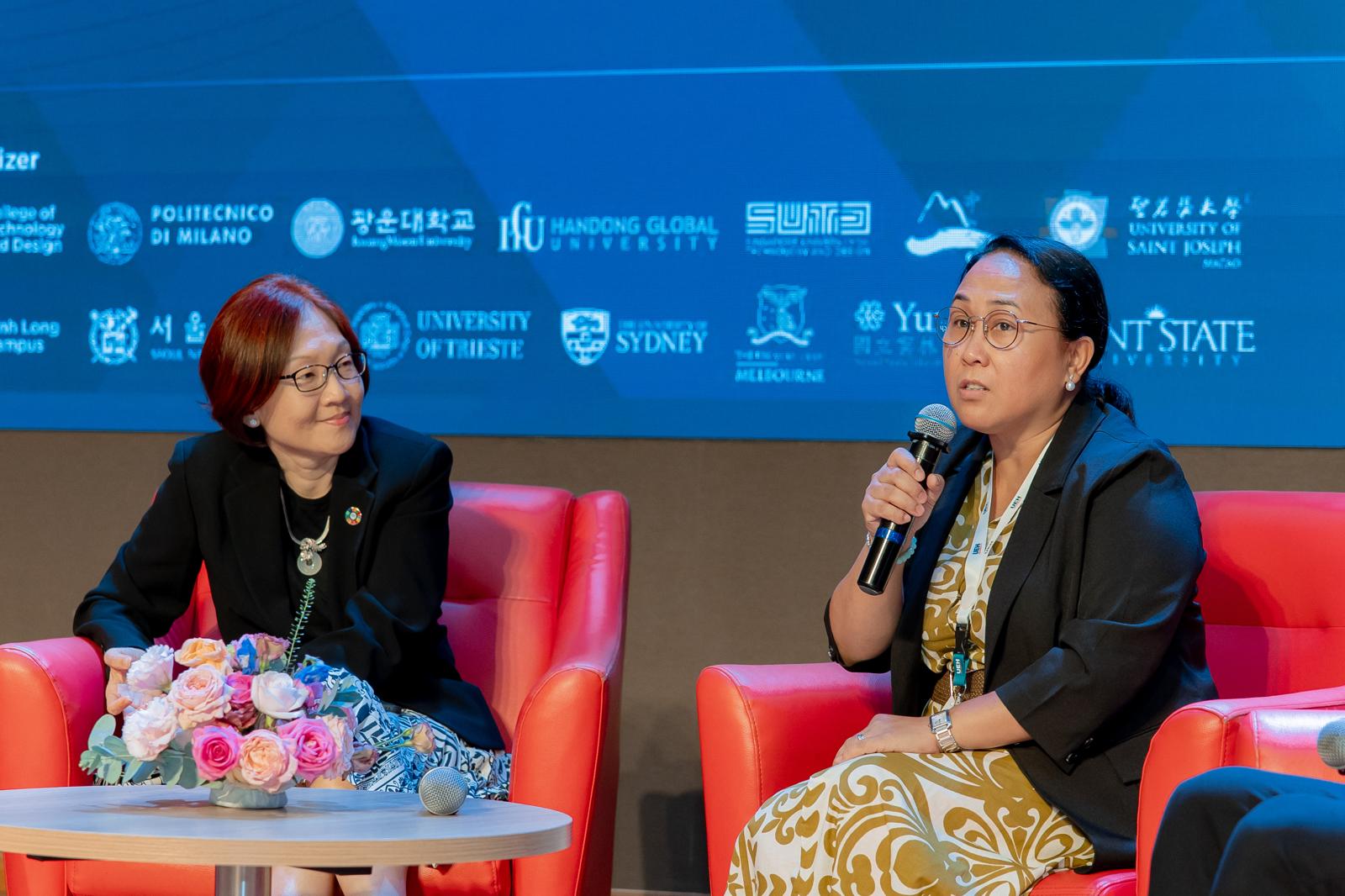
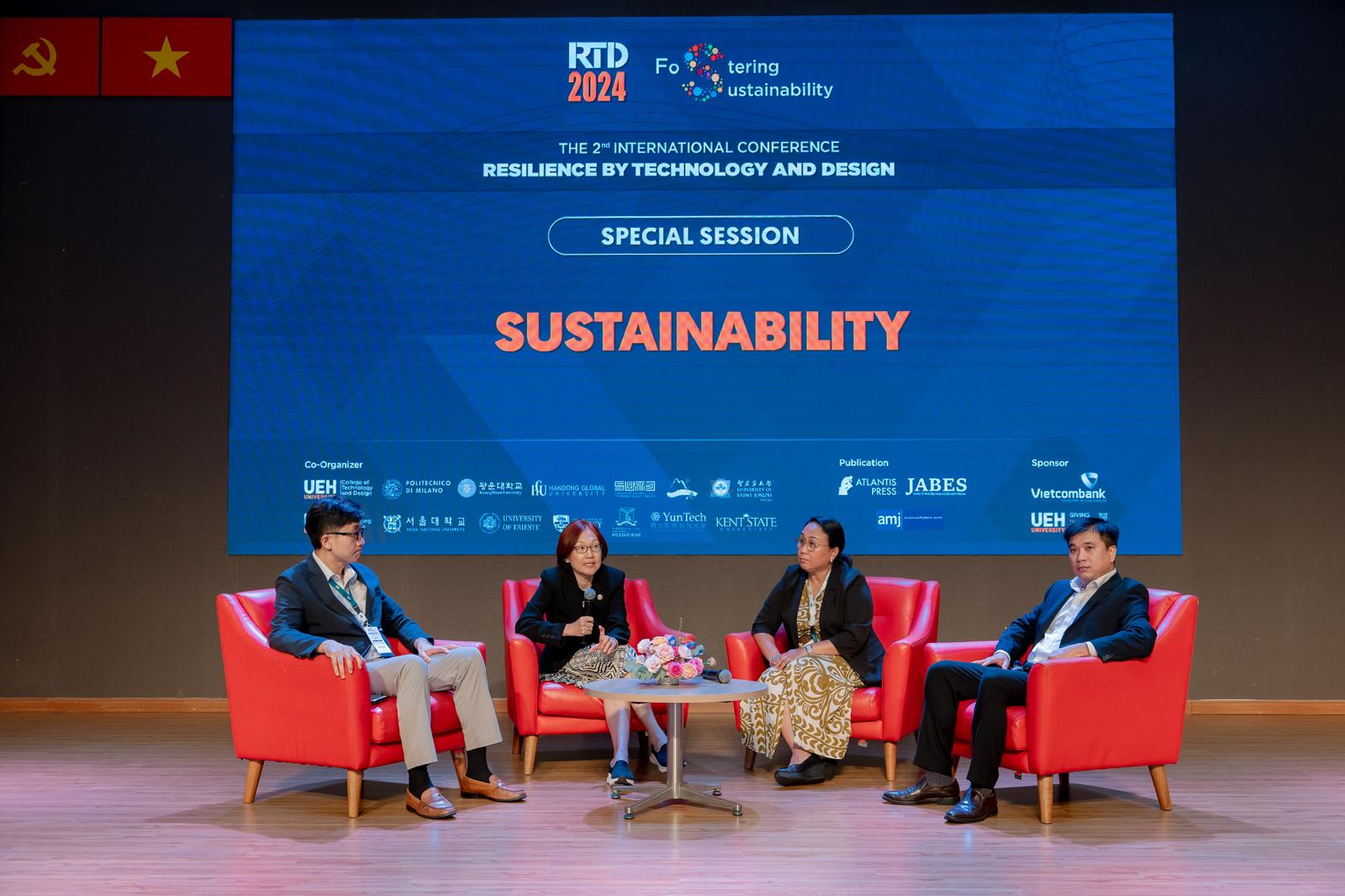

Prof. Filipa Martins joined Prof. Trinh Thuy Anh and Prof. Álvaro Barbosa on a special session panel focused on ArtTech in Asia: Trends and Fusion in a New Era, where innovative strategies and new ideas were discussed.
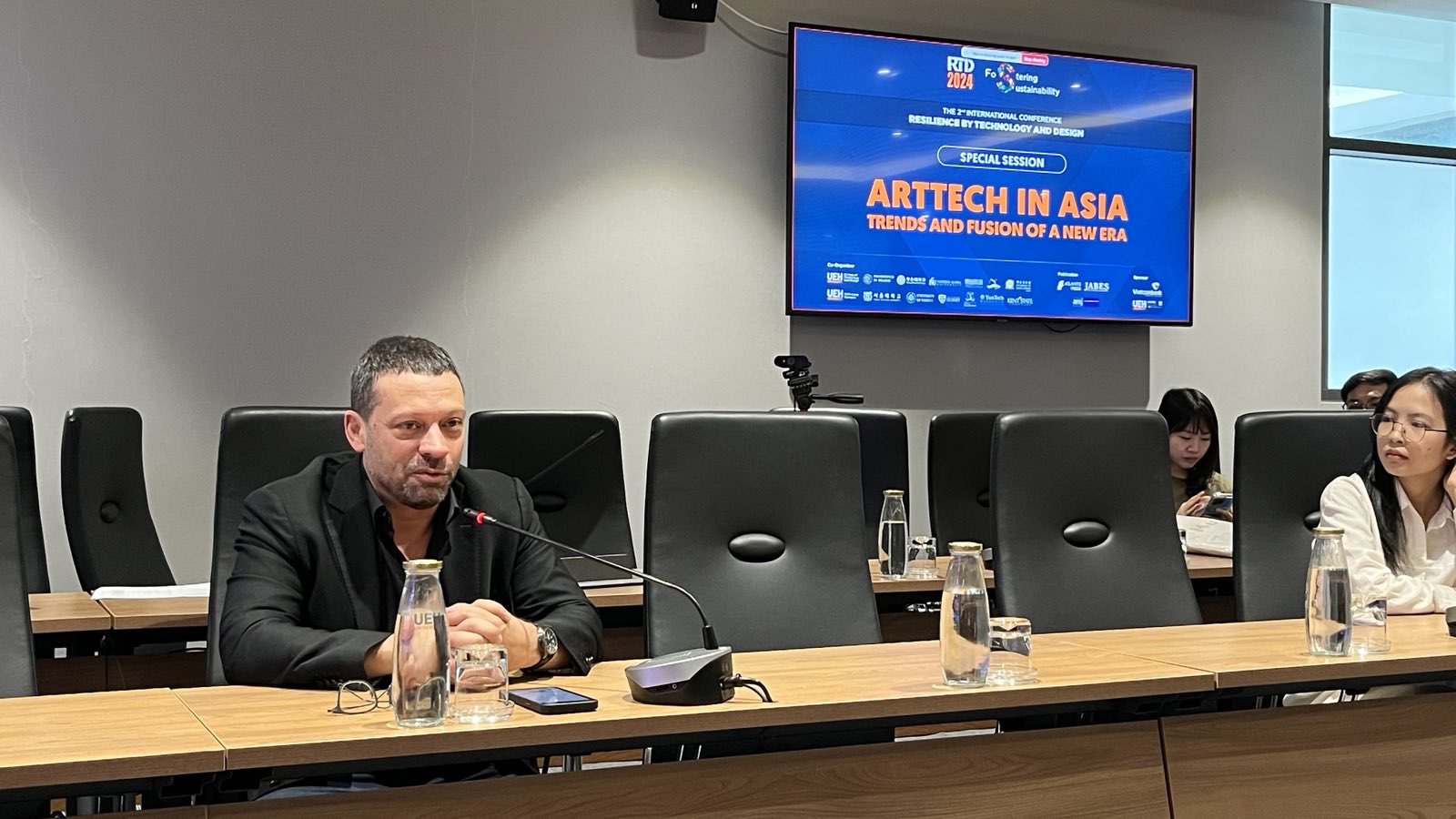
A Master of Design student, Wai I Wong, Hazel focused on a special paper oral presentation session focused on Exploring Portuguese Tiles (Azulejos): Revealing Macao’s Cultural Heritage through Fabric Materials and Techniques and their integration with AR Experiences part of her Master dissertation. The project is aligned with the SDGs: SDG 4: Quality education; SDG 11: Sustainable Cities and Communities; Digital Heritage and Preservation strategies. Collaboration: Project dissertation work from Master of Design (USJ/FAH) and a project funded by the Macao Foundation under Prof. Filipa Martins de Abreu.

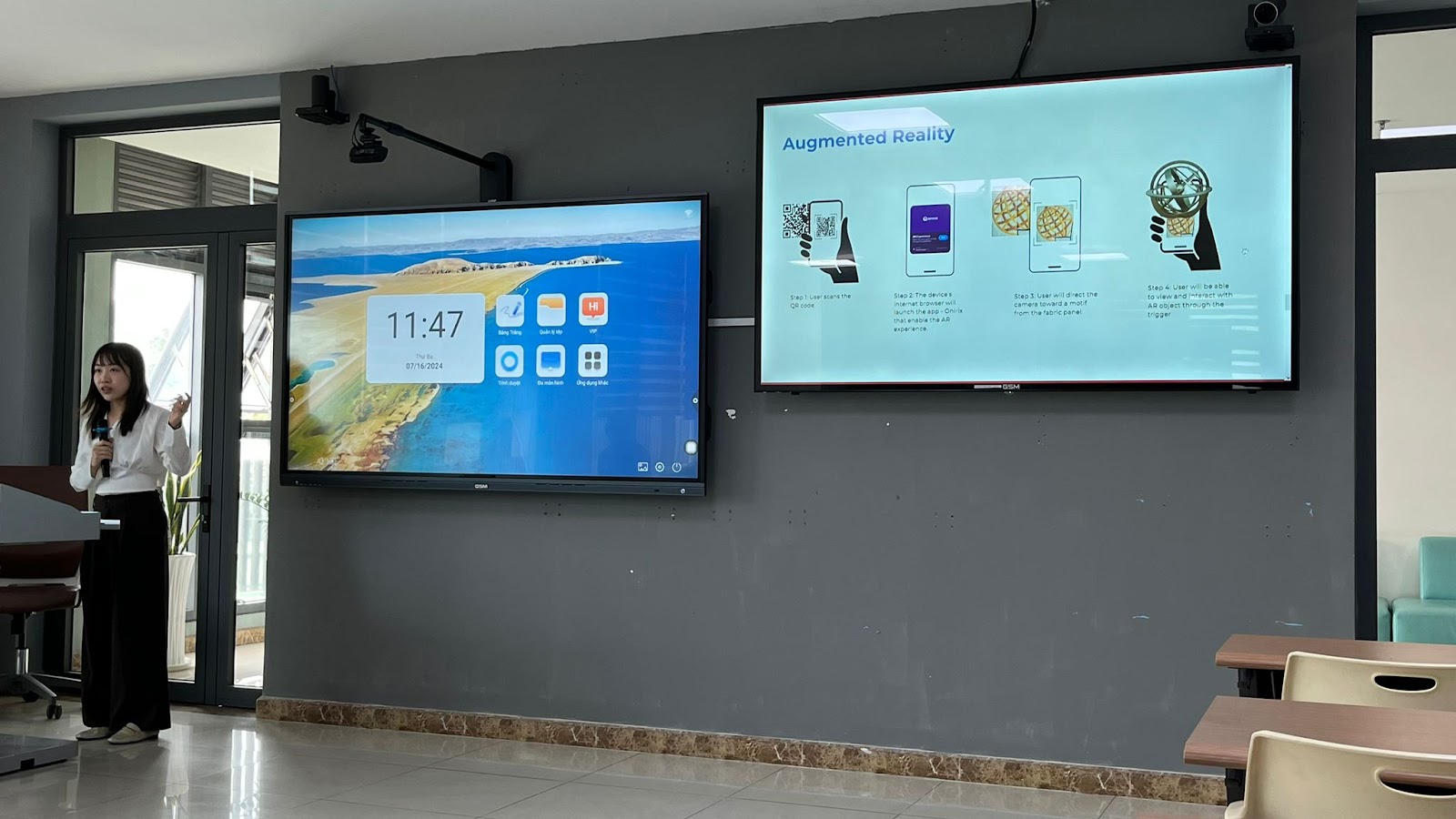
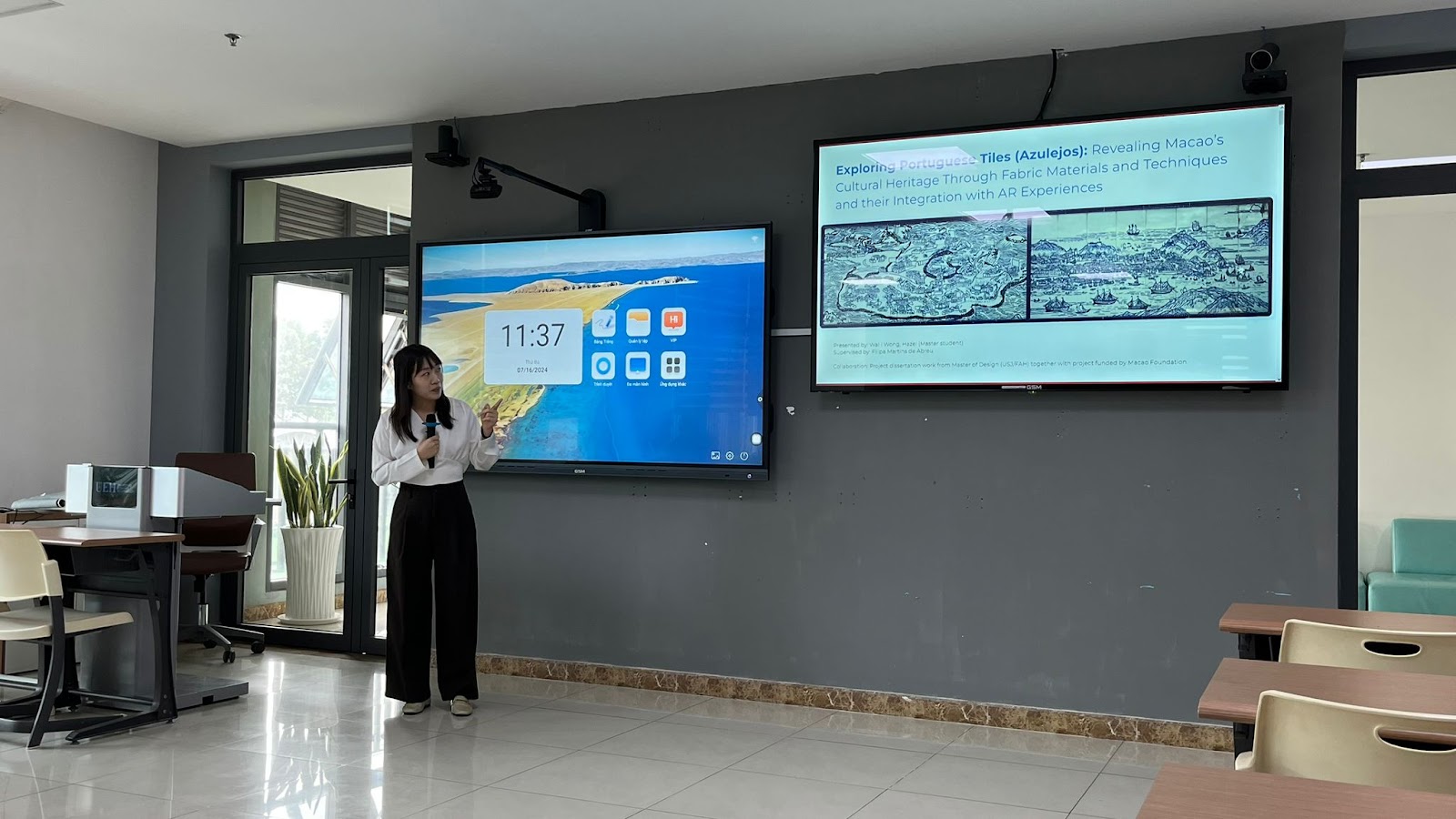
Prof. Karen Tagulao delivered a presentation on how nature-based solutions can help address many of the societal and environmental challenges coastal cities face due to urbanisation and climate change impacts. She presented some example projects from their work at USJ. She highlighted the role of sustainability in protecting cities and promoting overall well-being aligned with the following: SDG 4: Quality education, SDG6: Clean water and sanitation, SDG 11: Sustainable Cities and Communities, SDG 12: Sustainable consumption and production patterns, SDG 13: Climate action, SDG 14: Life below water, SDG: 15 Life on Land.
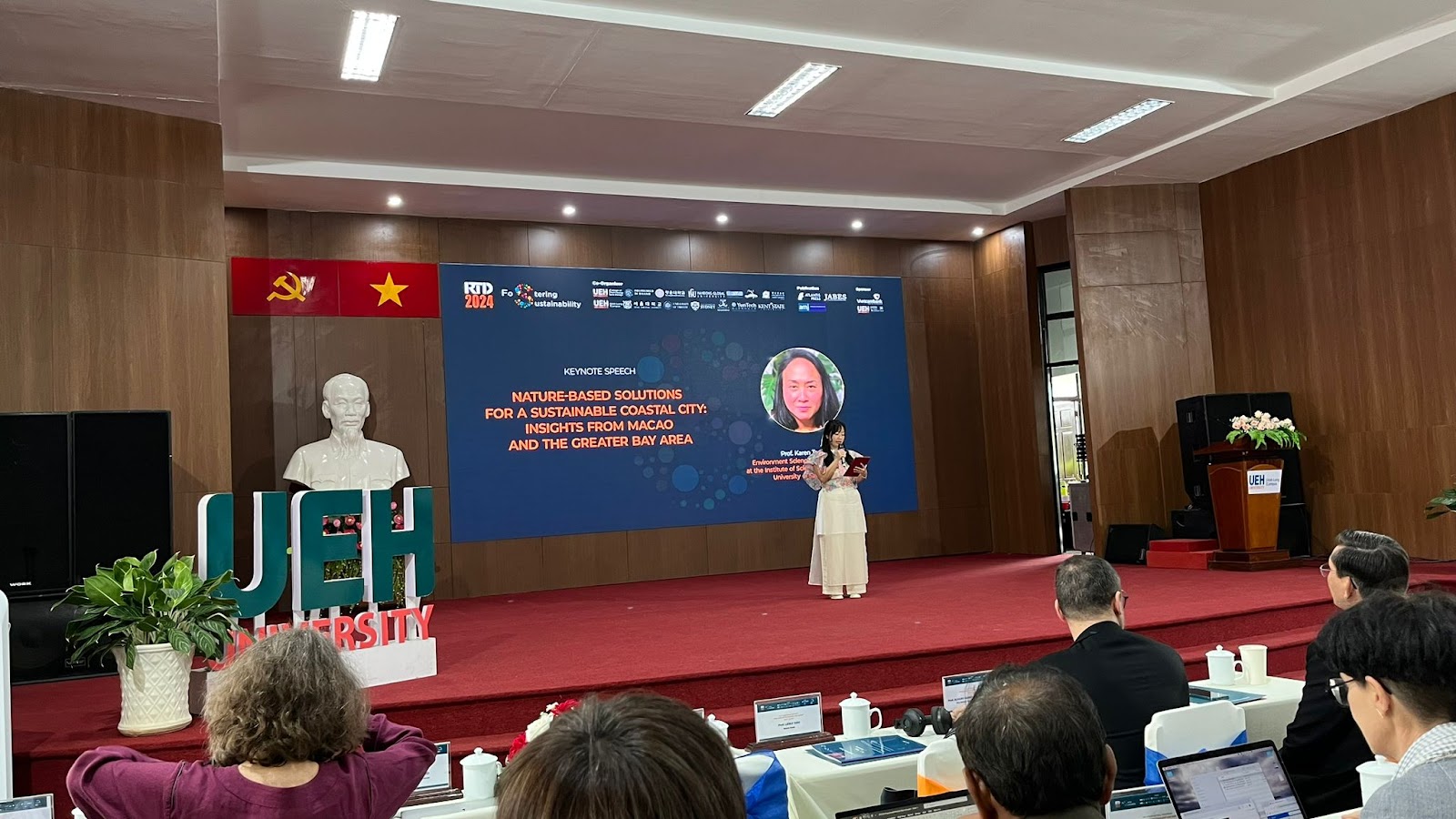
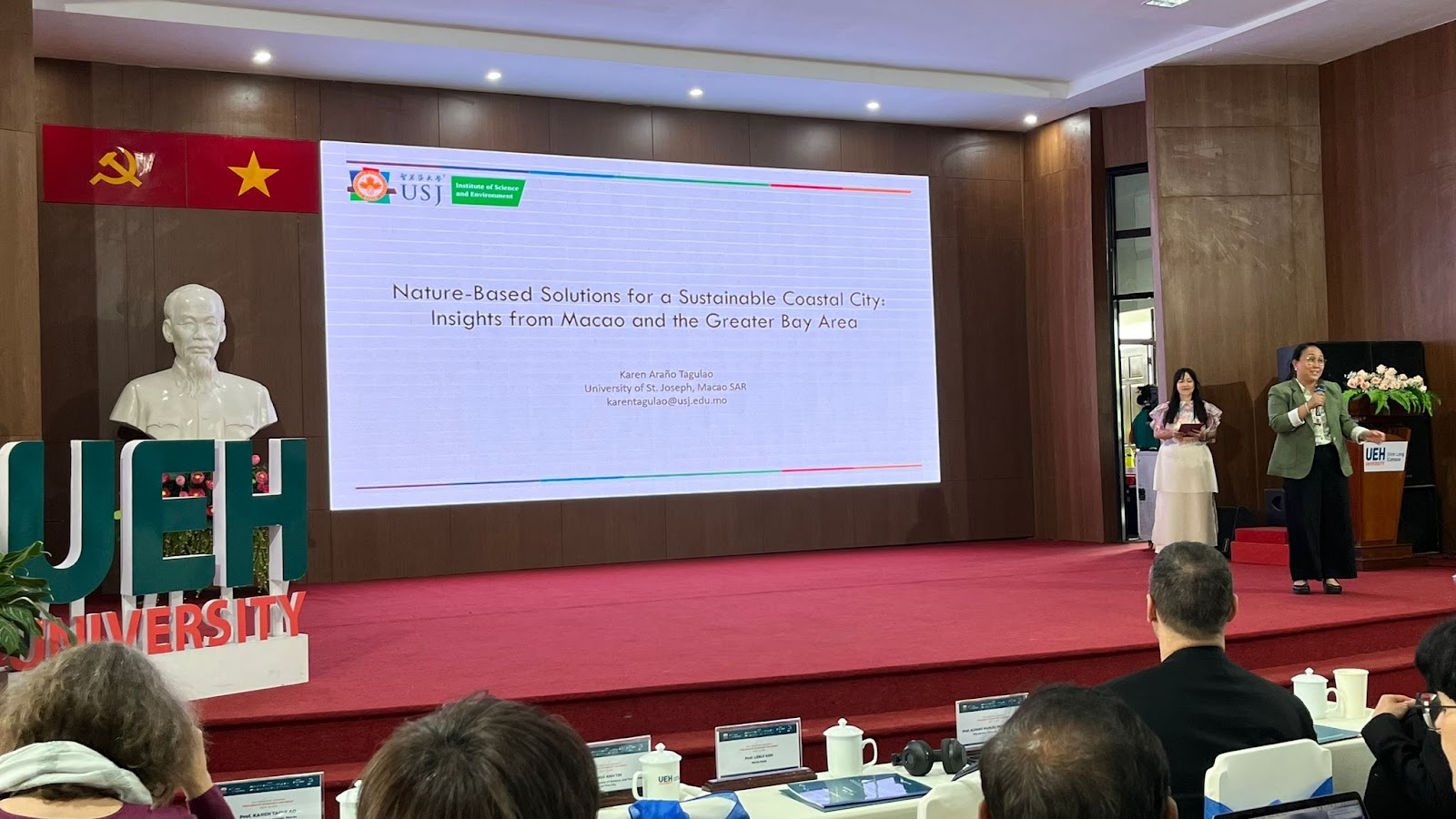
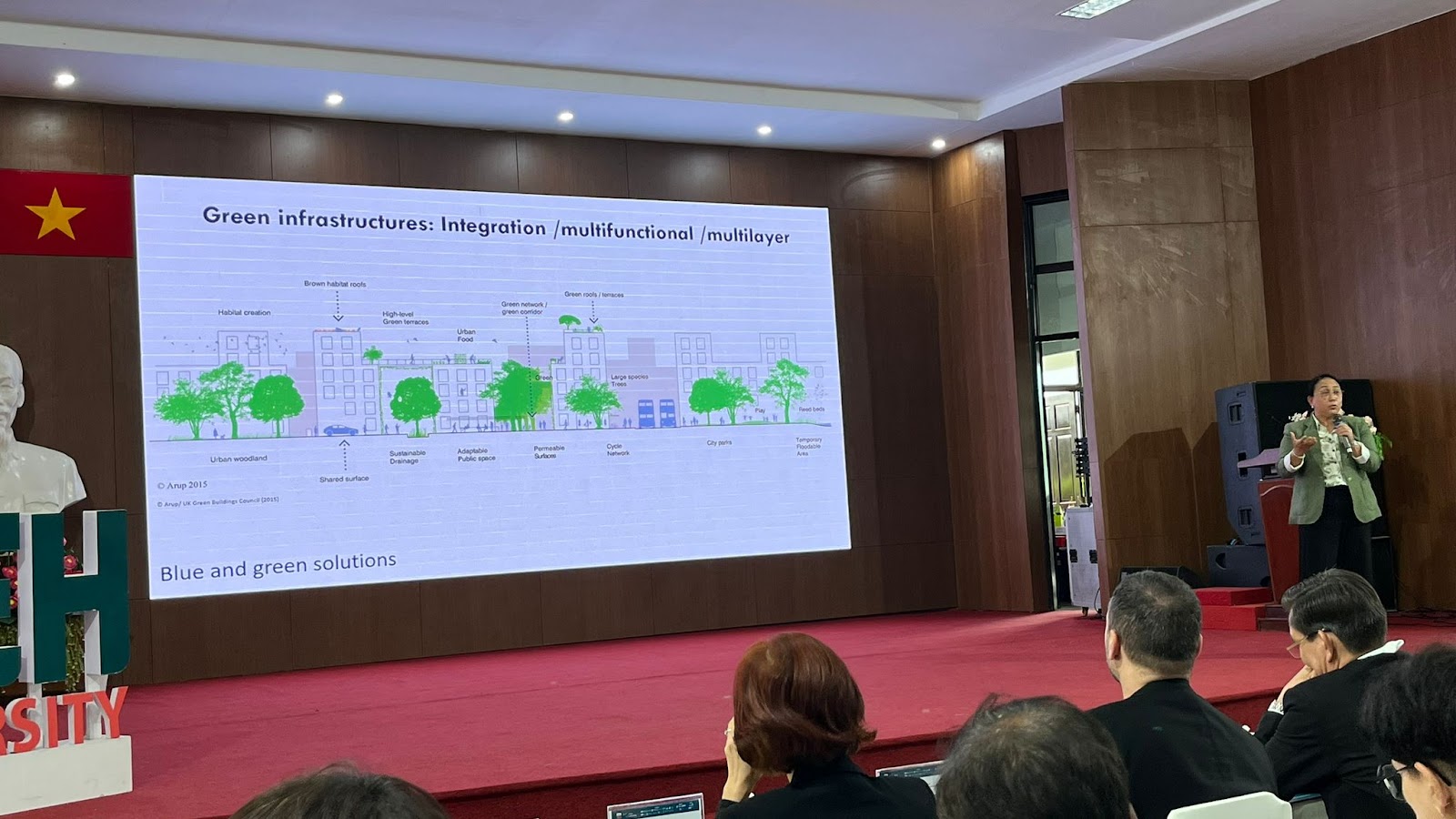

During the four days of the conference, numerous meetings and strategies for partnerships and activities were held, including a meeting with the School of Media Design and the University of Saint Joseph; a meeting with the Institute of Smart City and Management – the University of Saint Joseph; Meeting ISCM – Partners (USJ, HGU, KuL, Trieste, Antwerpen, SUTD, KWU); Meetings with the following topics: International Workshop – Urban Beyond the Urban 2024 – with NBS and the International Sustainability Forum meeting with UEH team and various partners from around the Asia/world.

Meeting School of Media Design and University of Saint Joseph
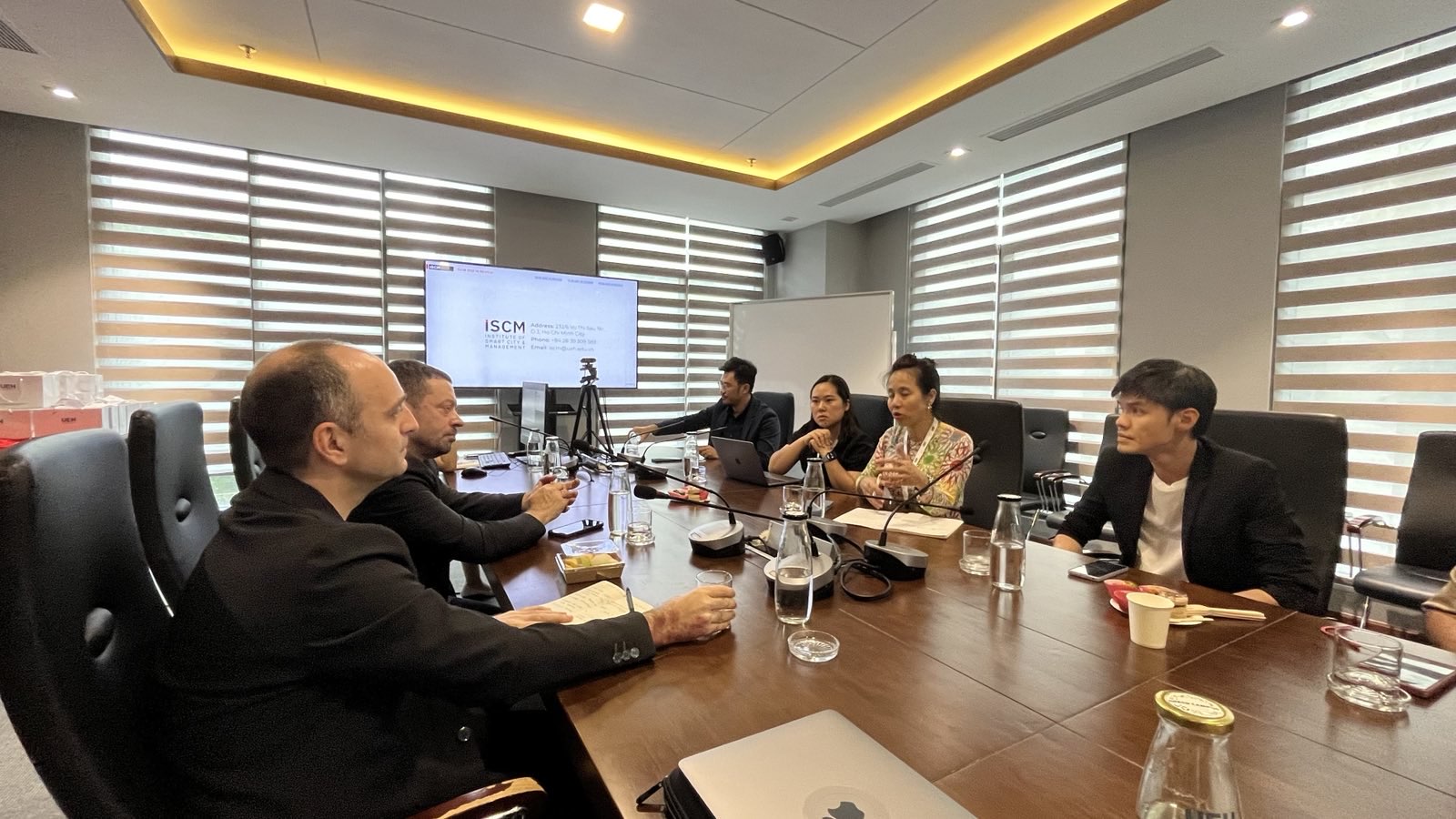 Meeting Institute of Smart City and Management – University of Saint Joseph.
Meeting Institute of Smart City and Management – University of Saint Joseph.
Mekong Field Trip
On July 18, the USJ delegation participated in the Mekong Field Trip, an event focusing on the unique sustainability challenges faced by the Mekong Delta. This experience provided an opportunity for hands-on learning and collaboration with local experts, further enriching their understanding of regional sustainability issues.
Looking Forward
The University of Saint Joseph Macao’s active involvement in RTD 2024 underscores its dedication to fostering sustainability through interdisciplinary research and innovation. Their contributions enhanced the conference and paved the way for future collaborations to achieve global sustainability goals. We thank RTD Organisation for the invitation and the pleasure of working with them on this fruitful initiative.









